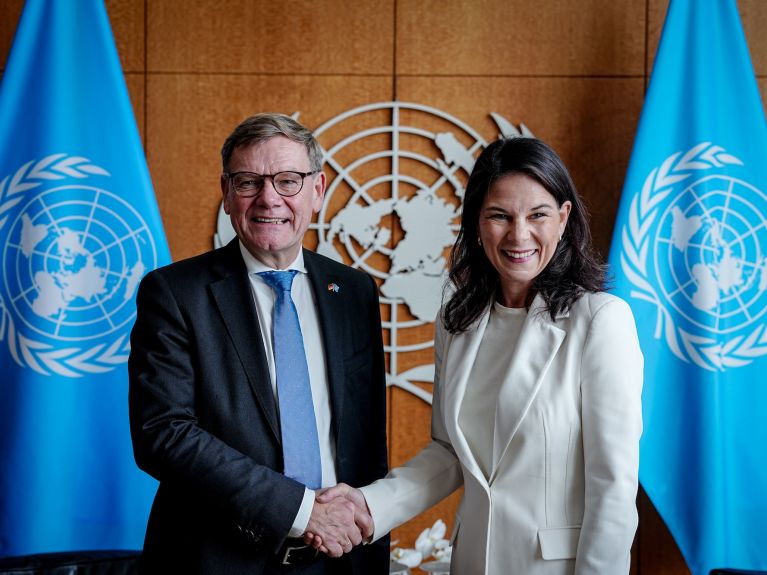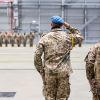Better together
The UN is celebrating its 80th anniversary in 2025. Germany endorses a strong global organisation. However, the organisation faces some major challenges.

The United Nations (UN) has, without a doubt, achieved a lot in its 80-year history. Established in response to war and destruction, the community of states has helped to improve the conditions of living of millions of people around the world through peacekeeping missions, international treaties and programmes for promoting healthcare, education and development.
However, the mood is far from festive on the UN’s 80th birthday. The world is in a state of disorder and the global organisation is agitated. There is plenty of criticism from various directions. In a recent statement, UN Secretary-General António Guterres even said that the UN were “under attack”.
Remembering the founding values
This is probably the reason why the global organisation chose “Better together” as the motto of its 2025 General Assembly. It was in this same vein that the German Foreign Minister Johann Wadephul called on people to remember the global organisation’s founding values. “We all would only stand to lose in a world where might makes right, where international rules are obsolete, a world where treaties are only binding for the weak – and where war is the continuation of diplomacy by other means,” Wadephul warned in his speech to the UN General Assembly in New York. “Such a world would ultimately be governed by force.”
Rising challenges
The community of states is in fact faced by a rising number of crises and violent conflicts taking place from Gaza via Ukraine through to South Sudan and the Democratic Republic of the Congo. In addition to this, there are the consequences of climate change in the shape of droughts, heavy rainfall and flooding, which are becoming ever more apparent, while the loss of biodiversity continues. When it comes to fighting poverty, the UN organisations have achieved a lot through decades of hard work. However, there are still many regions that are affected by poverty. So there’s still a lot to do for the United Nations, but there is also a lack of certainty when it comes to mastering the rising challenges. Some countries have turned away from multilateralism.
Need for reform of the Security Council
There are various matters where the UN Security Council is unable to make any decisions, for example because Russia has been exercising its veto power to undermine all peace efforts in relation to its war of aggression against Ukraine, which constitutes a violation of international law. The distribution of power on the Security Council is among the main points of criticism raised against the global organisation: emerging countries such as Brazil and India are not represented in this highest UN committee and the same is true of the entire African continent, as well as Germany and Japan.
This means that all non-permanent members have only one option for the time being, and that is to repeatedly get elected onto the Council for two years at a time, which is what Germany aims for for 2027 and 2028.
There has also been a decrease in the Blue Helmet missions that used to be emblematic of peacekeeping solutions. Some 60,000 soldiers, police officers and military experts are currently active for the UN, ten years ago the number was almost twice as high. This is due, among other things, to a lack of missions approved by the Security Council, scepticism regarding their effectiveness, and a lack of funds.
Financial constraints
The UN is generally affected by a pronounced financial crisis. The UN Controller Chandru Ramanathan reports that failure to pay membership contributions at all or on time has lead to serious “liquidity issues” for the global organisation. This forces the organisation to cut budgets and jobs, and the peacekeeping troops have to make do with fewer resources, too. The USA as the most important donor is thinking about further reducing its UN contributions, and this is yet another aggravating factor.
Shared responsibility
However, the work of the UN remains indispensable, especially in view of the increase in global, national and regional crises. There is no alternative to communication and shared accountability. The Federal Government agrees: “We support a rules-based international order with a strong UN at its centre that will allow us to pursue a global approach to addressing global challenges,” says Foreign Minister Johann Wadephul about this constant factor of German foreign policy.


